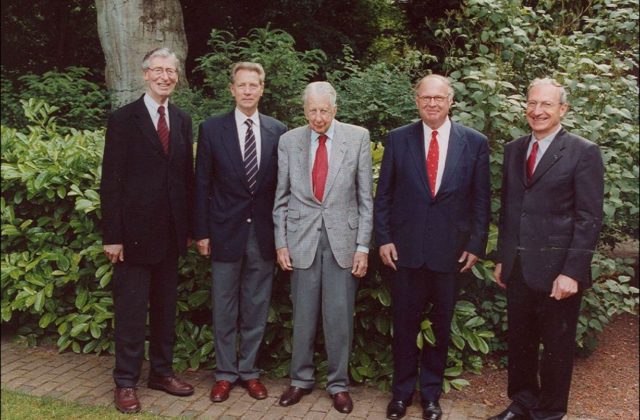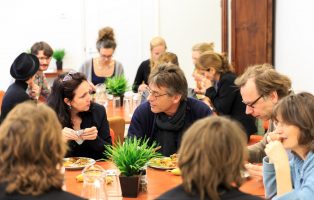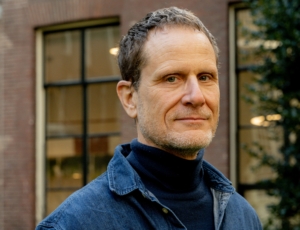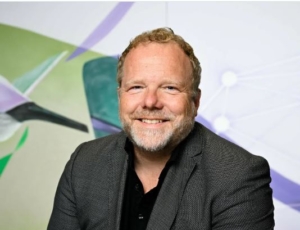“First, it is important, indeed imperative, to come to some agreement about the role of humanist studies in secondary and tertiary education. Second, the European universities are undergoing structural change, which will result in a new academic landscape with greater diversity than before. Third, it is wrong, particularly for the humanities, but also for the sciences to defend and illustrate the importance of science and scholarship only in utilitarian terms. Fourth, although there are fundamental differences, science and art also have a great deal in common.
But, to return to my main subject: What does all this have to do with an Institute for Advanced Study? Maybe not much in practice, but it has everything to do with “The Idea of an Institute for Advanced Study”. In the title of Phil Converse’s entry on “Centres for Advanced Study” two characteristics are mentioned: “International/ Interdisciplinary”. That is to say, Centres for Advanced Study ought to have an international flavour and be of an interdisciplinary nature. That science is international by nature can be taken for granted. The term ‘interdisciplinary’ however raises some problems. I must admit that I tend to be rather sceptical about the way it often is used. In many cases it seems to be muttered as a mantra. However, at NIAS I have learnt by experience, the value of an interdisciplinary environment. Here, people from diverse disciplines and interests are in a position to meet, to learn about new subjects, to become acquainted with different approaches and so inspire each other to take a fresh look at their own research. This type of interdisciplinary environment is extremely rare. I, for one, know of no other place where an economist exchanges ideas with an Assyriologist, and where both encourage the other to take a new path down the garden of ideas. The importance of this form of interdisciplinarity was most eloquently described by a Princeton faculty wife who, according to Robert Darnton, said to a visiting Fellow at the Institute for Advanced Study: “It’s so nice of you people from the institute to come here and cross-fertilize us”.
International and interdisciplinary are thus the keywords for an Institute for Advanced Study. But to encapsulate the Idea of an Institute for Advanced Study I would prefer to use two other notions: freedom and community. Or in Latin, to please Cicero: Libertas et Communitas. The importance of freedom, and indeed of isolation, which is so characteristic of NIAS, was already recognised by Newman who said, “The common sense of mankind has associated the search after truth with seclusion and quiet. The greatest thinkers have been too intent on their subject to admit of interruption […] Pythagoras […] lived for a time in a cave. […] Friar Bacon lived in his tower upon the Isis”. If one ever needed an argument for locating NIAS in this isolated part of Wassenaar – or for not providing telephones in the Fellows’ offices! – this is it.
Freedom and isolation create the setting, each year, to foster a scholarly community where people listen to each other, talk to each other, inspire each other and often develop life long friendships. This leads me to my fifth and final conclusion: Institutes for Advanced Study should, as far as possible, remain as they are. In an academic world that is increasingly dominated by policies imposed from above and notions of productivity, ‘output’, and impact, it is essential to nurture at least a few safe havens for the mind. We need institutes where one can work without someone looking over your shoulder all the time. Places where your invitation is based on the trust that you will do your best at what you are best at doing.
You may think that I have come up with a rather romantic and perhaps unrealistic vision of an Institute for Advanced Study, and you are quite right. Let me reassure you, I am as surprised by myself as you are. It must be this special occasion that has made me do so. Farewells seem to inspire one to speak at a somewhat more elevated level than normal. They also offer the opportunity to make some personal observations, and that is what I am going to do now. First of all, I would like to say what a great pleasure it is to see here, today, the founding father of NIAS and eponymous hero of this lecture, my Leiden colleague, Professor Uhlenbeck. I am also very happy to see my two predecessors, Professors Misset and Van de Kaa. We all know how much we are indebted to them for their part in founding and directing this institution. I am also grateful to the NIAS Fellows Association, not only for everything they do for NIAS, but also for offering me the chance to deliver my official farewell at their annual meeting.”

Nowadays, every Rector, Director or Dean is obliged to have a research policy, or a ‘strategy’. I have not got one and in fact I have never had one. As far as strategy is concerned, I followed Napoleon’s maxim: “You engage and see what happens” (“On s’engage et puis on voit”). As far as policy is concerned, I am inspired by what that great statesman and diplomat Lord Salisbury said about British foreign policy: “British policy is to drift lazily downstream, occasionally putting out a boat-hook to avoid a collision”. I admit that this does not sound like much, but, on the other hand, in the fields of strategy and of policy it would be difficult to find greater masters than Napoleon and Salisbury.
Having come to NIAS myself without a strategy or a policy it would be out of character to leave a message behind for my successor. Moreover, as Cecil B. de Mille said: “If you have a message, send a telegram”. I will, therefore, not conclude with a message but with a metaphor. There are two ways to run a research institute: as a shepherd or as a gardener. The shepherd uses a sheepdog and wields a rod to drive his flock to green pastures. The gardener waters and nourishes the soil so that the plants in his garden will flourish, flower and bear fruit. It is probably not hard to guess which method I prefer, and so, the advice I have to offer my successor, Wim Blockmans, will come as no surprise to you. I will let Voltaire speak for me through the famous concluding words of Candide: “Il faut cultiver notre jardin”.”
Read the full lecture: 20_Henk Wesseling
About the Author
Henk Wesseling (1937) was Professor of Contemporary History at Leiden University. He has been Rector of the Netherlands Institute for Advanced Study (NIAS) since 1995 and was Fellow of the same Institute in 1984/85. Wesseling was also Visiting Fellow at the École Pratique des Hautes Études, VIe Section (now E.H.E.S.S.), Paris, and at the Institute for Advanced Study in Princeton (N.J.), in respectively1971/72 and 1980/81.
As a recognised authority on European expansion, H.L. Wesseling has published widely on colonial and imperialist history. His best known books are Soldier and Warrior. French Attitudes toward the Army and War on the Eve of the First World War (2000); Divide and Rule. The Partition of Africa, 1880-1914 (1996), which was translated into six languages, and Imperialism and Colonialism. Essays on the History of European Expansion (1997).
Henk Wesseling has been decorated by both the French and Dutch governments and has received prizes for his influential academic work, including the many essays he wrote on various historical and cultural topics.




